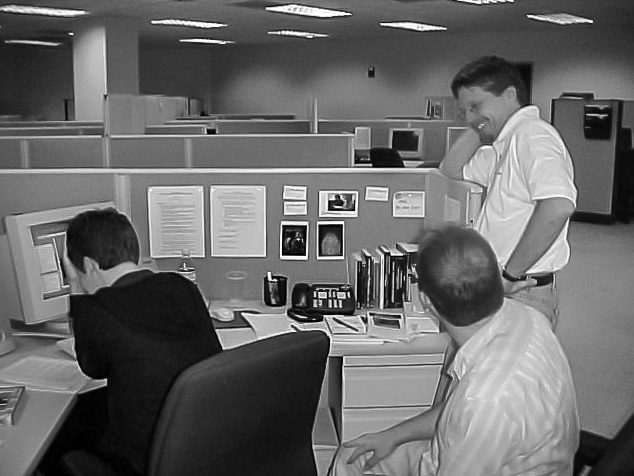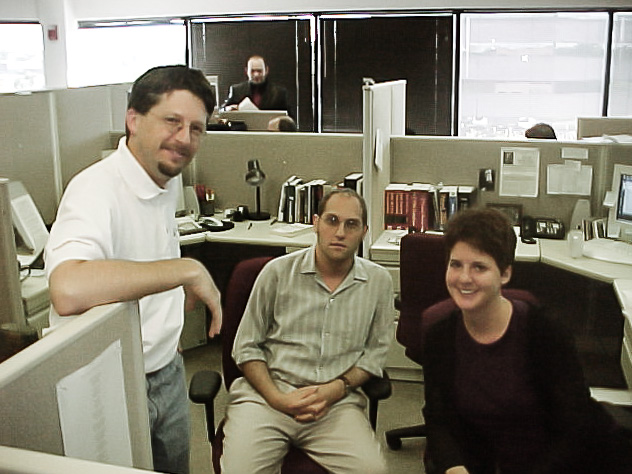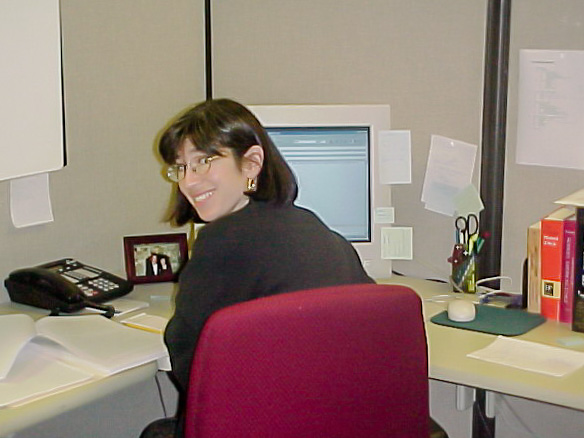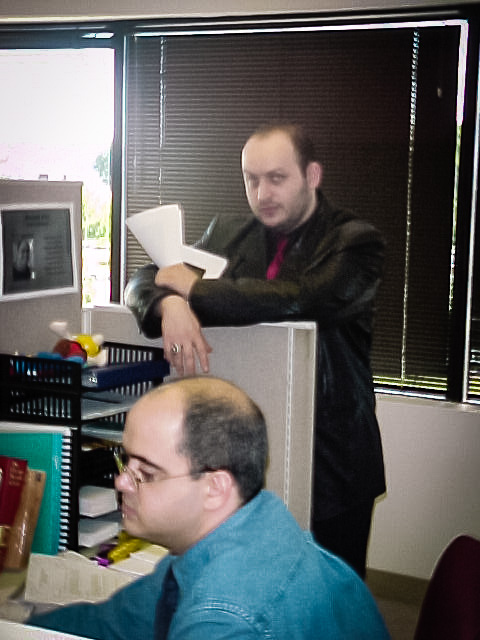I can’t believe I’m writing this, but in two weeks I will be in Lipnica. Two weeks. I’ll actually be arriving in much less than two weeks. Still — last night I was thinking, “Two weeks and I’ll be back at Zurek.” A very comforting thought.
“I try to tell myself to hold on to these moments while they last.” As Adam says about chess, I’ve got to be “balls-to-the-wall” with this. I’ve got to be aggressive in seeing people — not wait for someone to invite me over for a visit, in other words. I’ve got to savor each and every moment — even the time taking the train from Warszawa to Kraków. In fact, I’m sort of looking forward to that more than anything else — my initial adjustment period, so to speak. Every time I’m on the orange line going to work, I look out and think, “This could just as easily be a train somewhere in Poland.” And I get a little tug of nostalgia. So now in the coming days I’ll get something similar, but a sort of nostalgia-in-advance.
I hope that my trip to Poland will help me adjust to being back in America. I don’t know if I’m being blindly, naively optimistic about this or not, but I really think that going back to Poland for just a little while will give me the necessary perspective to appreciate being back here. What I miss most about my life in Lipnica are the friendships. It’s not the apartment (though of course it would be nice to have such a place here); it’s not really the teaching (it’s more the interaction with students, not the act of teaching them when to use “a,” “an,” and “the”); it’s not the cold winters; it’s not even the thrill (which quickly wore away) of living in another country. It was the friendship — knowing that I had something to do on Saturday nights and, more importantly, someone to do it with; sitting at talking around an ognisko; smoking and drinking with Janusz while listening to our mutually small blues collection;’ having an unplanned lunch with Mastelas on a Sunday afternoon.
So now I’m listening to Trzycie (sp?) Simfonia Góreckiego. It’s music that demands to be listened to — commands one’s attention — and it’s probably not the best music to be listening to while trying to type in my journal. Still, I’m in the mood to listening to something Polish, and this is the best I’ve got (without a doubt).
At some point I’ve got to start really planning what I want to do while I’m there. I don’t want to go and just let things happen. I’m afraid if I do that then I won’t get to do certain things I really want to do. Among them — a day in Kraków, perhaps with Kinga J. or Edyta; a day in Zakopane, definitely with Charles; a day of riding a bike around Lipnica, hopefully with Kinga M. when she gets back. I want to have some sort of idea of what my time there will be like.
Other than this exciting bit of news — and the accompanying news that I’m flying for less than $700, thanks to Michelle — nothing much has happened this week.
Oh, part of the motivation for going so soon: Kamil was drafted into the army! He leaves 4 July for a six-month stint. That means if I were to go for Charles’ wedding in September, I wouldn’t get to see Danuta or Kamil. I found out about this Monday, hence the suddenness of the trip.
I had to talk Kali into letting me get time off. At first she wasn’t keen on the idea, but I had a strong argument: we have two course developers starting — one tomorrow, one the next Monday. The first thing they’ll have t do is read all the chapters and start making some changes. I’ll have enough time for them to read the chapters and discuss them with me before I leave for about a week. During that week, hopefully, they’ll have time to make some changes, re-write stuff and so on, so that when I get back, there’ll be a pile of work for me to do — which certainly hasn’t been the case of late.
Another interesting development in the workplace: I had my evaluation this week and Kali feels I’m not making the most of my skills. What exactly did she mean? Well, she’d like to see me more involved in the tech side of things as something of a liason between the tech staff and the editors. An editor who knows a lot about the ins and outs of the software we’re using and things like that. She also wants me to design and implement some workshops for editors to help them make the most of Word. Several of them — including Kali — would like to learn how to make macros (as if it’s terribly difficult), and so I’ll be teaching again. And I won’t have to worry about not being prepared and such — I’ll be able to prepare this stuff while I’m at work. Part of my job will be to prepare for these workshops! What a novel concept!



